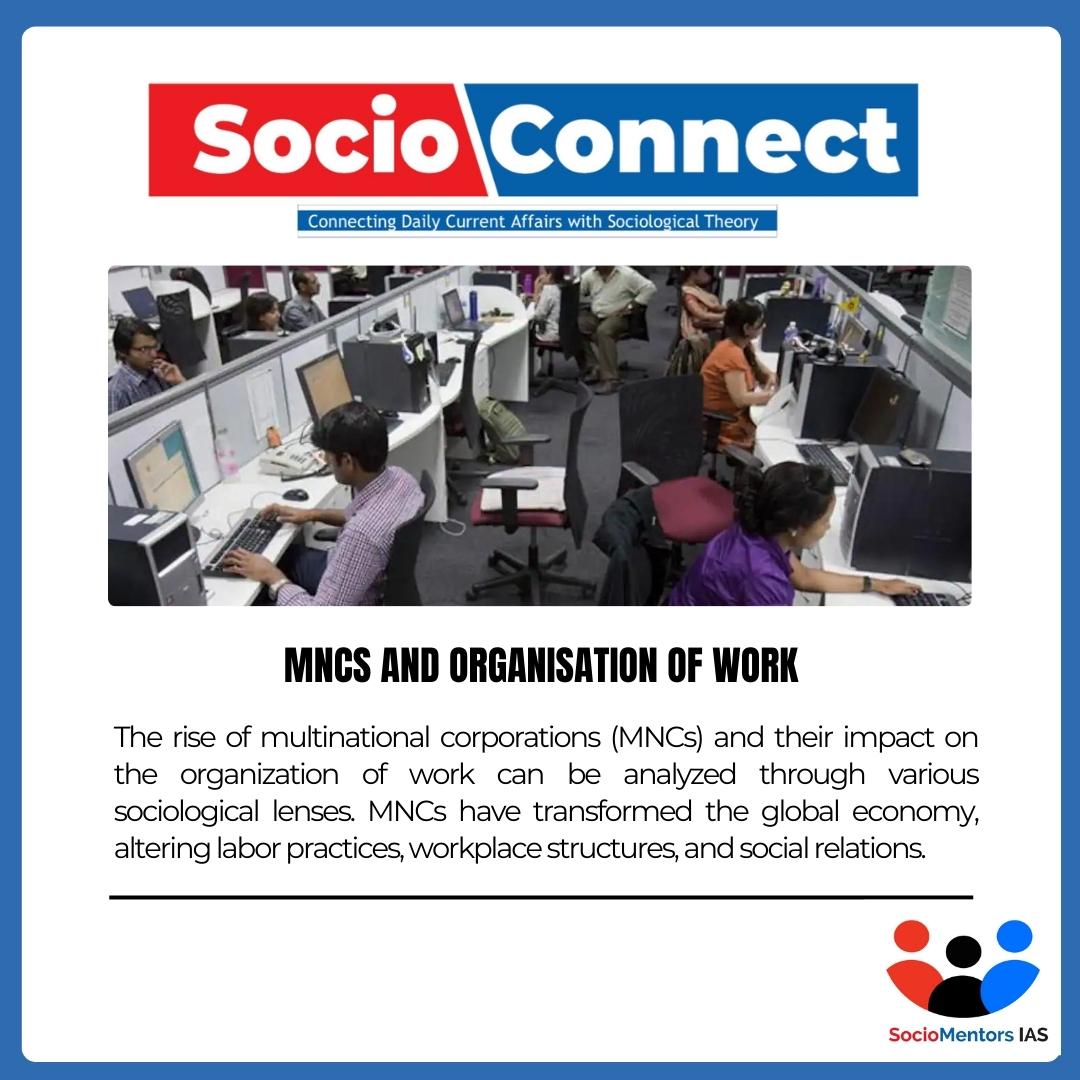MNCs and Organisation of Work
September 21, 2024
The recent tragic suicide of an EY (Ernst & Young) employee in India has cast a spotlight on the immense challenges faced by workers in the Corporates. The National Crime Records Bureau statistics reports show that 35 in every 100,000 people in Bangalore which is the tech city in India commit suicide due to depression. A 2021 survey conducted by Indeed India also revealed that nearly 46% of Indian corporate employees reported high levels of burnout, with many citing the lack of work-life balance and the pressure to perform as key factors.
Challenges faced by Corporate Employees
A study conducted by Assocham last year showed that 42.5 percent of employees in the Indian private sector are afflicted with general anxiety disorder or depression, as compared to government employees.
- Less Pay and More Work: Corporate employees accommodate less pay with more working hours which contribute to an atmosphere of constant fatigue. This further leads to stress and frustration, thereby acutely affecting mental health.
- The fear of layoffs, especially in industries such as IT, BPOs, and other service sectors, has become a growing concern among Indian employees. The rise of automation, outsourcing, and the constant need to upskill contribute to job insecurity.
- Remote work and Dichotomy: With hybrid or remote work, employees especially female employees often face challenges in separating work from personal life.
- Reduced Job Satisfaction and Sense of Purpose: When employees are alienated from the outcomes of their labour, they often feel that their work lacks meaning. This leads to lower job satisfaction and, over time, disengagement from the organization. A 2020 survey by LinkedIn found that over 50% of Indian corporate employees reported feeling disengaged at work, with many citing a lack of meaningful work or recognition for their efforts as key reasons for their dissatisfaction.
Sociological Analysis of Issues faced by Corporate Employees in India
- Alienation: Corporate environments are often hierarchical and bureaucratic, where decision-making is centralized in higher management. Employees, especially in middle and lower levels, have little control over their work processes or the outcomes of their labour. This lack of autonomy can cause alienation, as workers feel that their individual creativity and initiative are stifled by the rigid structures of the organization.
- In his book White Collar: The American Middle Classes (1951), C W Mills also focused on the alienation experienced by white-collar workers in corporate settings. He argued that these workers, while appearing to hold more privileged positions than manual laborers, often experienced a deep sense of alienation due to lack of autonomy in decision making, Standardization and Impersonality were workers were treated as interchangeable parts of a system. Their personalities and individual aspirations were subordinated to the organizational needs of efficiency and profit.
- Dependency and MNCs: India’s position as a semi-peripheral or peripheral hub in the global economy, as conceptualized by Immanuel Wallerstein’s World-Systems Theory, often leads to the overexploitation of its workforce. Externally, multinational corporations (MNCs) from core nations take advantage of India’s lower labour costs, weaker labour protections etc to maximize profits.
- Source of Cheap Labour: With globalisation and liberalisation, India has become the hub of ‘cheap labour’ for most of the employers across the globe. A private sector employee in India works for a minimum of 48-50 hours a week when compared to 33 hours a week in UK and 40 hours a week in US. Also the pay scale in India, a ‘developing country’, is meagre when compared to these ‘developed countries’ which pay almost six times more even after deducting the indexing prices and cost of living
- Capitalist profit making culture: MNCs are central actors in the capitalist system, where the accumulation of wealth and power is prioritized over the needs of labour. Inthis system, the bourgeoisie (owners of production, including corporations) seek to extract the maximum surplus value from the proletariat (working class).
- In postmodernity, MNCs operate within a global capitalist system that prioritizes speed, flexibility, and profitability. Employees are often required to adapt quickly to changing market demands, which can create instability and alienation as they struggle to keep up with constant shifts.
Thus, it is critical to acknowledge the structural and systemic issues prevalent in the IT and corporate sectors that contribute to extreme stress, mental health struggles, and feelings of hopelessness among employees. Employers need to invest in employee health and satisfaction such as to boost productivity.



